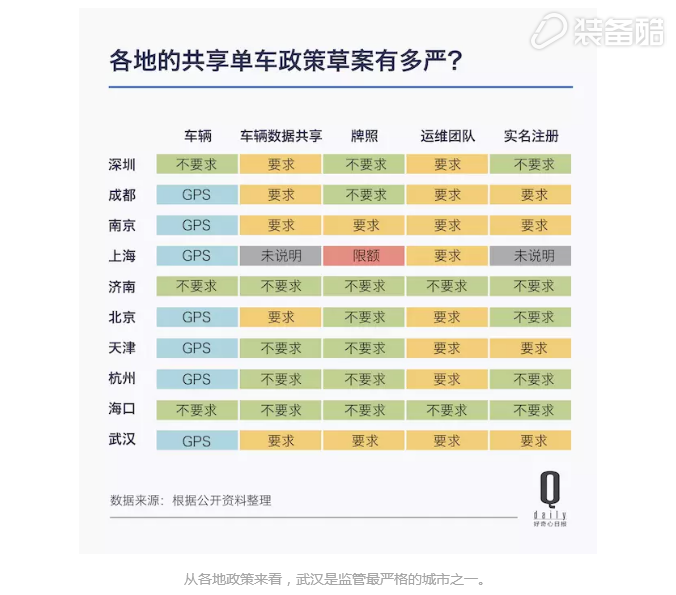On September 4, Wuhan announced the suspension of sharing of bicycles.
A few days ago, Wuhan also promulgated the "Opinions on Encouraging the Healthy Development of Internet Rental Bicycles." It plans to increase the number of non-motor vehicle lanes in the urban area to 2,455 kilometers, which is 4 times the current mileage. One of the goals is to clear road traffic flooded by shared bicycles.
Since the end of 2016, 700,000 shared bicycles have entered Wuhan. As of March this year, shared bicycles have spread from Beijing to more than 40 cities across the country in less than a year, and the total number of vehicles has exceeded 2.35 million.
The speed of expansion of shared bicycles has exceeded the tolerance of some cities.
Taking Shanghai as an example, from April 2016 to the present, a total of dozens of shared bicycle companies have put 1.5 million or so shared bicycles in Shanghai, and according to the density of 50 people, 500,000 vehicles have been able to Meet the people of Shanghai travel. Idle bicycles occupy sidewalks and some non-motorized lanes, causing inconvenience to traffic.
In this case, the Ministry of Communications of the People's Republic of China (MOT) in May 22 introduced guidelines for managing the sharing of bicycles and formally incorporated the shared bicycles into the supervision. Afterwards, various localities successively announced regulatory measures in various places, with varying degrees of rigor:
From the perspective of local policies, Wuhan is one of the most regulated cities.
Followed by more detailed restrictions, regulatory policies.

For example, in July of this year, Wuhan put forward a series of requirements for shared bicycle companies, including allowing the local police on duty to have the authority to schedule and operate the ofo operation and maintenance personnel to direct their vehicles.
Beijing networked 97 kilometers of non-motorized lanes on the Third Ring Road and requested a dedicated area beside the bus station to park shared bicycles in order to reduce the phenomenon of illegal parking of shared bicycles.
After the Hangzhou Urban Management Committee spent 220,000 yuan processing 23,000 illegal shared bicycles, it interviewed 9 shared bicycle companies and prohibited any new shared bicycle companies from launching new vehicles.
At the beginning of last month, the Ministry of Communications also issued relevant documents in conjunction with other relevant departments, requiring the sharing bicycle companies to implement real-name registration and bind the account to a mobile phone number. The data on the bicycle will also enter the national credit information.
However, in addition to reasonable regulatory measures, some cities have expanded the network of urban non-motor vehicle lanes earlier than Wuhan.
In May of this year, Chengdu expanded the non-motorized lane of the first ring road of the city from 2.5 meters to 3.25 meters; Xiamen had only a small number of non-motor vehicle lanes at the beginning of the urban planning, but after the sharing bicycle entered, the government also opened Kaiyuan Road. A 3m wide non-motorized driveway was designated, and 7 non-motorized parking spots were set in the original parking space for motor vehicles.
PU Notebook is the main product of office stationery, fully reflect the development and progress of modern printing technology, our company uses the latest international printing technology and equipment, fully ensure the clarity of products, color lifelike, through cutting, binding and other processes, to provide customers with quality products.


Pu Notebook,Coil Bound Books,Spiral Binding Book,Coil Book Binding
Jilin Y.F. Import & Export Co.,Ltd , https://www.jlyoufoundit.com